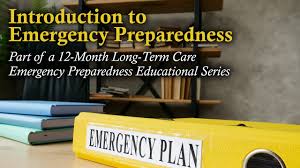
Kenya’s vibrant event scene attracts international audiences, creating a need for seamless communication across languages. Translation services play a crucial role, but navigating the legal and regulatory landscape is essential. This guide explores the key legal considerations for multilingual events in Kenya, ensuring you comply with local laws and regulations when utilizing translation services.
Understanding the Legal Framework
Here’s an overview of the key legal aspects to consider:
- Business Registration: If your language interpreter service provider is a foreign company operating in Kenya, ensure they are registered with the Business Registration Service (BRS) and have the necessary permits to conduct business.
- Qualifications and Licensing: In Kenya, there’s no central regulatory body for translators. However, professional organizations like the Kenya Translators Association (KTA) offer certification programs. Consider partnering with translators or firms that hold relevant certifications to ensure quality and professionalism.
- Consumer Protection Act (2019): This act protects consumers’ rights and ensures fair business practices. When contracting with a translation service provider, ensure a clear and detailed contract outlining the scope of work, fees, and dispute resolution mechanisms.
- Data Protection Act (2019): This act regulates the collection, storage, and use of personal data. If your event involves translating sensitive information, ensure your chosen translation service provider adheres to data protection regulations. Implement secure data transfer protocols and obtain informed consent from attendees regarding the use of their personal data.
- Copyright and Intellectual Property: Be mindful of copyright restrictions when translating materials. Ensure you have the necessary permissions to translate copyrighted content, such as presentations or marketing materials.
- Taxation: Translation services provided in Kenya are subject to Value Added Tax (VAT). Clarify with your chosen service provider how VAT is included in their pricing structure.
Obtaining Permits and Certifications
The specific permits and certifications required for your event depend on its nature and scale. Here’s a general overview:
- Business Permits: If you’re organizing a large-scale event, you might require permits from local authorities depending on the venue and activities involved.
- Work Permits: If your chosen translator is a foreign citizen working in Kenya, they might require a work permit. Verify this beforehand to ensure compliance.
- Event Licenses: Depending on the event type, licenses from specific government agencies, such as the Ministry of Culture, Sports, and Tourism, might be necessary.
Compliance Ensures a Smooth Event
Here are some additional tips for legal compliance:
- Maintain Clear Documentation: Keep copies of all contracts, permits, and certifications related to your translation services for record-keeping purposes.
- Seek Legal Counsel: For complex corporate events involving a significant amount of translated material or sensitive information, consider consulting a legal professional specializing in intellectual property or data protection.
- Partner with Reputable Providers: Choose translation service providers with a strong reputation for ethical and legal conduct.
By understanding and adhering to these legal considerations, you can ensure your multilingual event in Kenya runs smoothly and successfully. Remember, legal compliance fosters trust and protects the interests of your event organizers, translators, and attendees alike.

